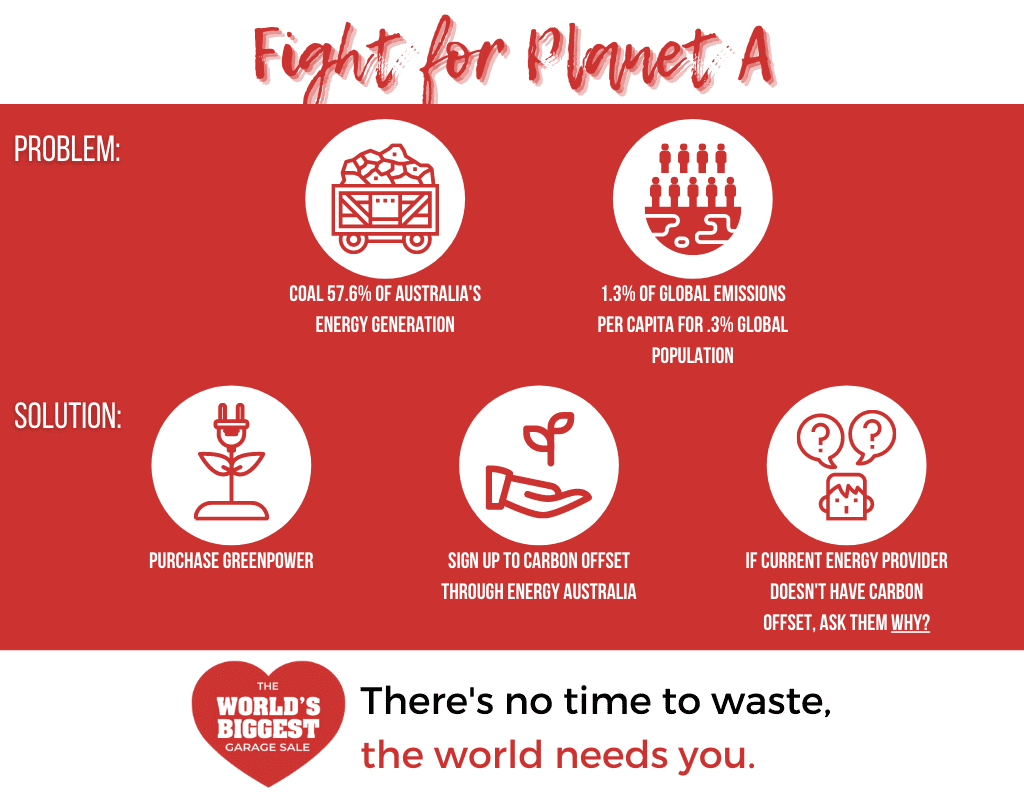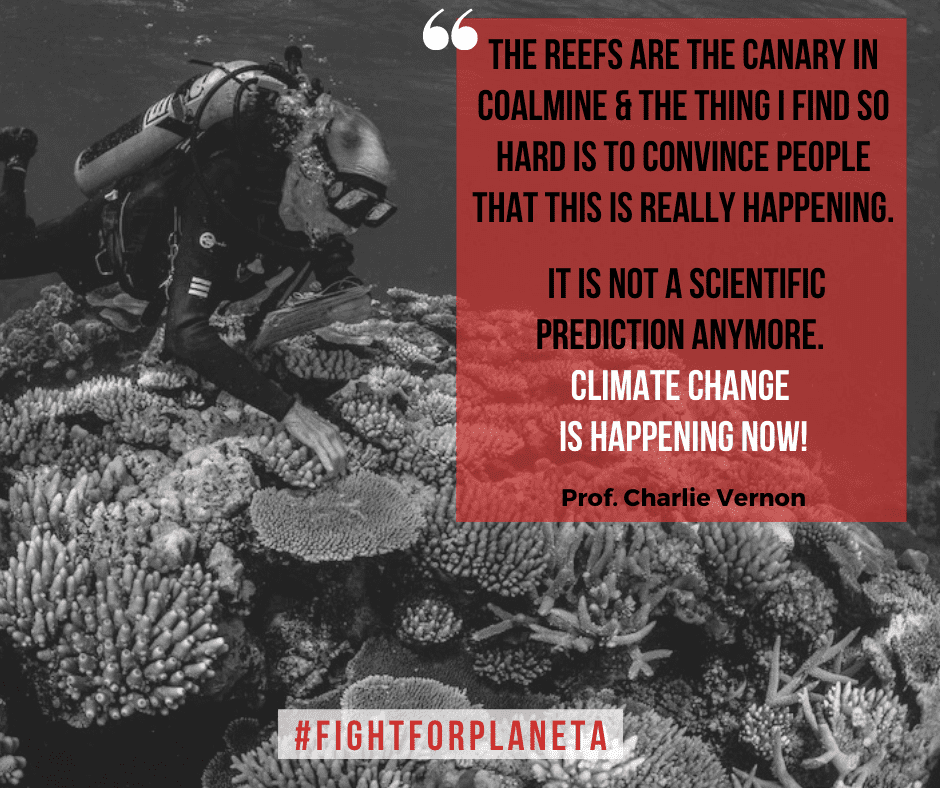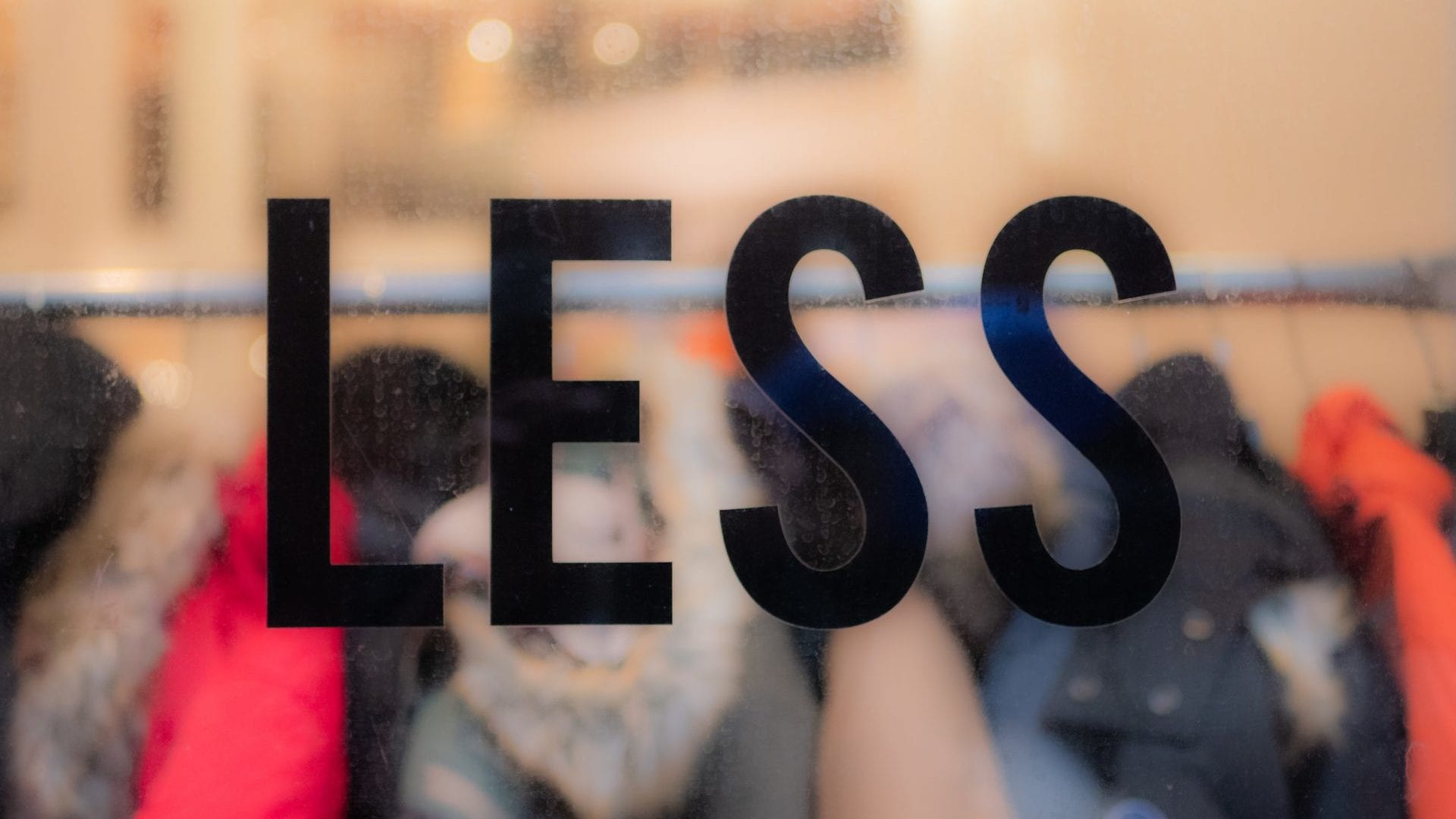Who watched the Fight For Planet A series recently? The series has really highlighted Australia’s current position with regards to climate change and focused on 3 areas we can work on: energy generation, transportation and food.
Energy Generation
We were shocked to hear the magnitude of Australia’s emissions and the harmful impact this is having on our planet. In Australia we’re pumping out 4 times the global average of greenhouse gas emissions. For a small country population-wise to be responsible for 1.3% of global emissions for .3% of the world population is too much.
Craig really sums it up well though regardless of what you do to reduce your impact on the environment:
“We can all solve the problem of climate change. This is empowering. We can give people solutions rather than just bunker down waiting for more horror to hit us.”
So where do we start on reducing our carbon footprint? The show gives some great tips:
- install solar panels
- purchase greenpower
- sign up to carbon offset through Energy Australia
- ensure you’re as energy efficient as possible
- if current energy provider doesn’t have carbon offset, ask them why?

Transportation
The majority of emissions in Australia actually come from cars (60%) and Australia has been very slow on the uptake to transition to hybrid or electric cars.
Australia currently has no mandatory standards with regards to greenhouse gas emissions, even though 80% of the global car market have standards for vehicle emissions. With Norway banning petrol and diesel cars by 2025, the Australian Government needs to demonstrate leadership and positive support for hybrid and electric vehicles in this country.
Right now there are very few incentives for Australian’s to buy an electric car and cost is still an issue. It’s anticipated that by 2024-2026 the price will be similar to what they are now.
And for those Australians who want grunt in their car and they’re worried electric vehicles:
Telsa can outrun the most powerful car in Australia
What’s the transport take-away: Make the switch to EV or hybrid cars now, take public transport, fly less and offset always and travel local, especially in these COVID times!
Food
It is estimated that a quarter of greenhouse gases come from food and food production. The series held a 250g/250ml challenge and you might be surprised by some of the results (from highest to lowest below):
- Asparagus (from Mexico)
- Beef
- Lamb
- Cheese
- Pork
- Kangaroo
- Chicken
- Beer
- Tomatoes
- Milk
Not surprising, but local grown fruit and veg has much less impact and beef and lamb are higher due to the methane production from these animals in farming. There is hope on the horizon however, with Queensland researchers discovering a pink seaweed fed to cows can significantly reduce methane. But it’s a little way off yet.
Deforestation for agriculture continues to also been an issue, with Queensland unfortunately leading the way.
And who’s bearing the brunt of rising global temperatures – our farmers who are suffering unprecedented drought. As one farmer said:
“We’ve been through droughts, but we have never had a stage where we haven’t planted. This district is unique – there’s such diversity in what’s produced here. But there are so many crops locally that are only being produced at 5% capacity. The biggest issue is that we have no water, even in other droughts, we’ve been at 30%. In March this year, we had to truck in water and that’s never happened.”
What’s the food take-away (no pun intended): – Grow Local, Shop Local, Waste Less and eat Plant based foods.
Where to from here
Like lots of things with climate change, there’s no magic bullet, just lots of things we need to keep trying and doing collectively. Good For The Hood has partnered with the ABC program ‘Fight for Planet A’ and provided toolkits to help us all make a difference.
The whole World’s Biggest Garage Sale team were struck by the sobering words from Professor Charlie Vernon (former Chief Scientist at the Australian Institute of Marine Science) talking about the coral bleaching on our beloved Great Barrier Reef – akin to an underwater bushfire. It’s in our hands to have the conversations and speak up for action with regards to our planet wherever we can.

#FIGHTFORPLANETA
